More than a hundred representatives of various entities linked to civil protection, from north to south of the country, were in Loulé, between the 24th and 26th of May, to participate in the 8th National Meeting of Resilient Cities and Towns, an initiative that took place for the first time in the Algarve region.
The exchange of experiences, the sharing of good practices, joint reflection and knowledge on the ground of a municipality that also does its daily work focused on the risks to which it is subject, were some of the lessons learned that the participants took home.
Three very busy days, with presentations of what is being done in Loulé and in the Algarve, the visit to equipment that is also a reference in terms of emergency and rescue, and naturally, a more cultural program to make known the historic area of city and its heritage were part of this meeting
The event started with the welcome session presented by the President of the National Emergency and Civil Protection Authority, Duarte Costa, and the host, the Mayor Vítor Aleixo.
The head of ANEPC spoke of the importance of local power in this matter and hailed "the performance that AMAL has had within the scope of the congregation of all municipalities to create a more resilient Algarve".
“We have to promote a culture of prevention, preparation, resilience and citizenship and we have to encourage risk education, the sharing of good practices and the mobilization of communities”, he highlighted. It is in this context that the idea of creating a training center within the scope of Civil Protection in the Algarve arises, a project that, despite some delay, “is being cherished by AMAL and the municipalities”.
“When it comes to risks, the question that arises is not 'if', it's 'when'”, underlined Duarte Costa, noting that the preventive aspect of civil protection will be a determining factor for “the control of the emergence of new elements exposed to risk ”.
Regarding this Meeting, the official pointed out that it was an “important instrument to increase institutional awareness of the challenges of management and the reduction of the risk of catastrophes, as well as to encourage the exchange of ideas and the creation of essential commitments for a path safer future”.
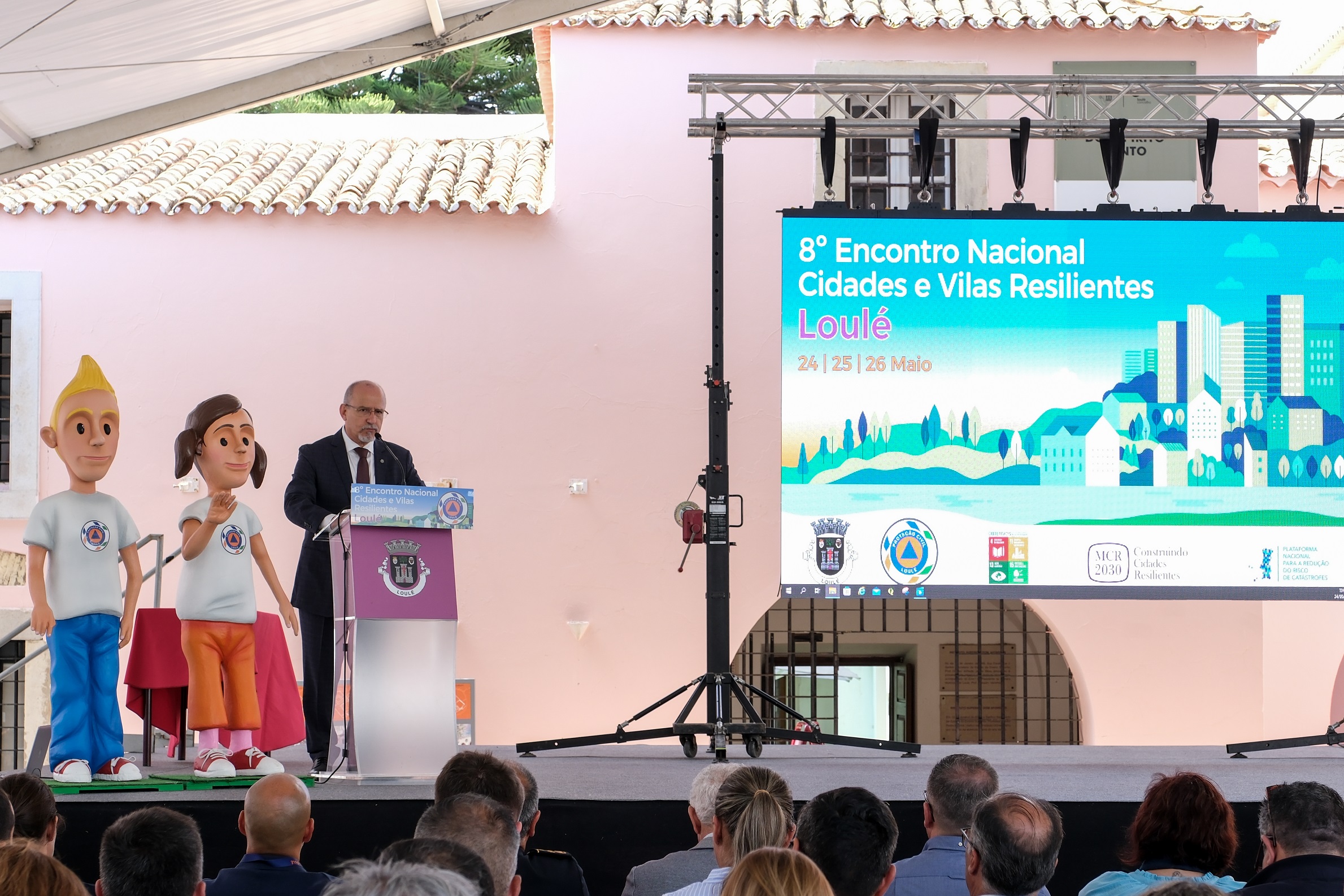
Vítor Aleixo, mayor of Loulé, also emphasized the importance of the theme of the Meeting. “Few dossiers are of such importance at the level of political work as the guarantee of the protection of the lives of our fellow citizens and the goods of nature”, he said. As such, it has been the prerogative of this Municipality to do better each year, with a permanent commitment in terms of means, number of men and knowledge regarding civil protection and municipal firefighters, “with the involvement of civil society”.
Adaptation to climate change and the implementation of the sustainable development goals of the United Nations 2030 Agenda are two actions in which the Loulé Municipality is committed and which, as noted by the mayor, are intertwined with issues of civil protection and “and with the task of making the territory and our communities increasingly resilient”.
Among the good practices promoted by this Municipality, the mayor spoke of the “Agenda of Sustainability, Forestry, Biodiversity and Rural Development”, in environmental education activities while mobilizing civil society, the “ambitious” program to install a network of defibrillators external automatic devices to ensure the safety of people in terms of health or the implementation of a tsunami warning service.
It was the turn of Carina Coelho, an ANEPC technician, to present the Platform for the Reduction of the Risk of Catastrophes in the Algarve, a pilot project that is in the implementation phase, led by AMAL. In a region where the main risks are, on the one hand, rural fires and, on the other, earthquakes and tsunamis, this platform assumes itself as a space for cooperation between municipalities and the private, economic and social sectors, which aims to integrate more effective disaster risk reduction measures.
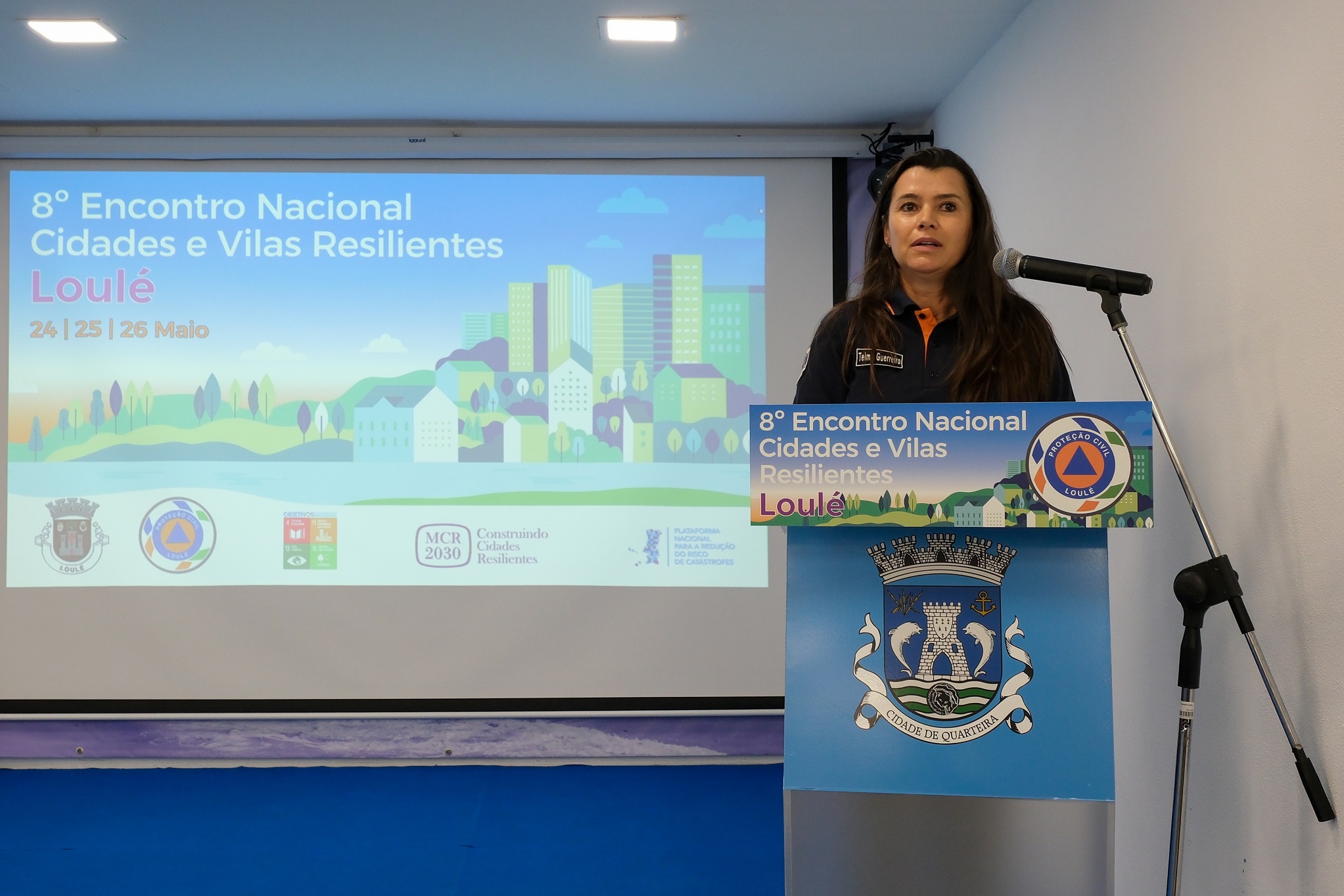
Luís Carvalho, coordinator of the GT3 Group of Resilient Cities, and the international guest, Milos Gubic, from UNDRR (United Nations agency that coordinates the International Strategy for Reducing the Risk of Disasters) delivered the certificates “Making Cities Resilient 2030” to the municipalities present.
This international Resilient Cities campaign was born in 2010 and its objective is that municipalities, on a local scale, can promote and highlight the work they do with communities in favor of disaster risk prevention and also in terms of resilience. Portugal is the country in the Euro-Asia region with the highest number of resilient cities, 51, and the only region, the Algarve.
Currently, more than 50% of the world's population lives in cities and, according to data from the European Union, it is expected that by the middle of the century it will be 66%. By the end of the century, 80% of the population will be living in urban areas, i.e. around 9 billion.
“They are spaces of risk but also the vital power in modern society. That is why resilience plans are crucial to having safer and more resilient communities around the world”, said Milos Gubic.
The Meeting was then divided into two panels that took place in two different geographies, inland and on the coast of the county. In the middle of the Serra do Caldeirão, the motto was “Forest and Biodiversity”, an area in which the Municipality of Loulé is developing an important dossier to safeguard this natural heritage.
The participants also had the opportunity to visit the Solidarity Institution of Barranco Velho, a place that during the summer period receives the pre-positioning of means, the delegation has attended an exhibition of means of various civil protection agents and cooperating entities within the scope the defense of the forest against fires.
Having as its “headquarters” the Advanced Civil Protection Unit of Vale Maria Dias, a fundamental space for the operations of prevention and defense against fires in the extensive forest area of the municipality of Loulé, the participants had the opportunity to verify the means and valences of the Service Municipal Civil Protection, namely the sapper equipment used in preventive forestry, as well as the autonomous capacity for the installation of an advanced command post, technical and logistical support in the event of a serious accident or catastrophe. Afterwards, they watched the presentations that dealt mainly with the challenges and risks that this territory faces.
The Loulé Municipal Civil Protection Service team shared the good practices developed in the Municipality, with regard to the problem of rural fires, namely interventions in fuel management lanes, applications, implemented projects, protocols and a set of actions and initiatives that aim to make the territory and communities more resilient.
Sónia Martinho, from the Municipality of Monchique, also brought some of the experience of this Algarve municipality in fighting forest fires, a scourge that has plagued Monchique so much. As in Loulé, cooperation between entities operating in the various areas of civil protection to protect the forest, goods and people has been decisive here.
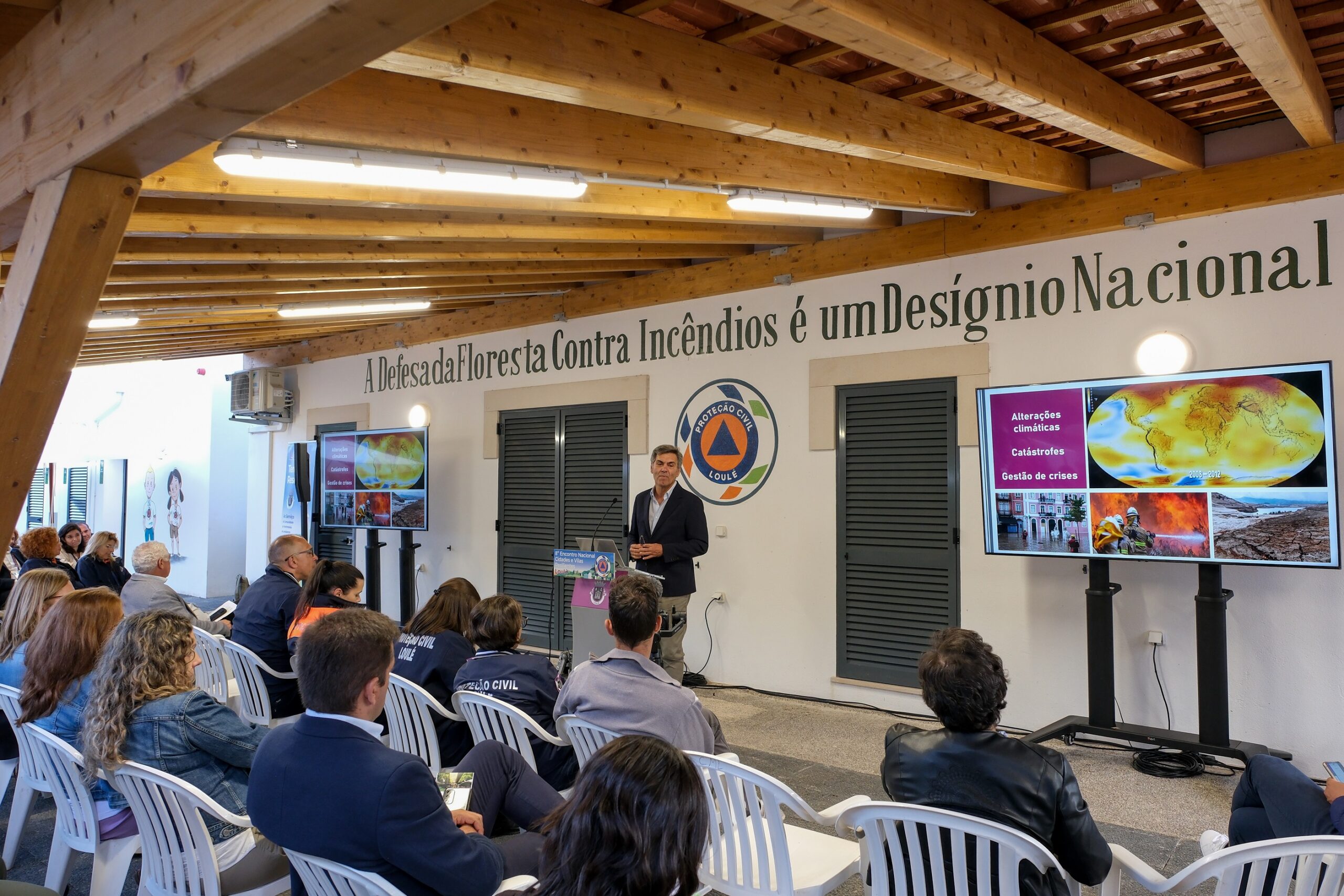
And to talk about the “Agenda of Sustainability, Forestry, Biodiversity and Rural Development of the Municipality of Loulé”, its coordinator, Miguel Freitas, addressed an exemplary project of what resilience could be in these areas that cover most of Loulé’s territory.
The different programs that are being implemented aim to promote not only a territory but also a resilient community, through the valorization of endogenous resources, reforestation and the management of the risk of greenhouse gas emissions in forest fires.
On the second day of the Meeting, the destination was the city of Quarteira, one of the points in the Algarve region most exposed to rising sea levels, where “Urban/Coastal Risks” were discussed. The work, which took place at the Centro Autárquico, began with an interim evaluation by Milos Gubic on the Sendai Framework for Disaster Risk Reduction 2015-2030. There are 7 goals, 4 priorities and 1 set of guiding principles, which underline that substantial reduction in disaster risk requires perseverance and persistence, with a more explicit focus on people, their health and livelihoods.
From UNESCO, Denis Chang Seng, specialist in the area of Oceans, spoke about the “Tsunami Ready” program, a global initiative aimed at promoting tsunami preparedness and resilience in coastal communities. Consisting of 12 indicators to be achieved. the program is designed to help communities improve their preparedness by taking a set of specific actions to establish a local tsunami warning system, investing in education and public outreach, and promoting evacuation planning.
In Quarteira, the Loulé Civil Protection team shared good practices developed in the Municipality, such as awareness-raising actions and public information on the risk of floods and projects that are being implemented and promoted in the parishes most vulnerable to this risk, processes planning and operationalization of protection and rescue devices for events, educational projects in the school community, as well as a set of actions and initiatives aimed at making the territory and communities more resilient.
From Lourinhã, the coordinator of the Municipal Civil Protection, Daniel Neves, brought up the theme of the importance of municipal coordination and the challenges of articulation at the municipal level of the various civil protection agents and cooperating entities.
Also at municipal level, José Guilherme, 2nd Regional Commander of Emergency and Civil Protection, presented a Special Civil Protection Emergency Plan for Seismic and Tsunami Risk in the Algarve Region, an instrument to support Civil Protection operations in the event of a seismic event and/or the occurrence of a tsunami in the region.
After a visit to the ANEPC Logistic Support Base, the second day of the Meeting ended with the dynamization of working groups and the presentation of conclusions.
To end the Meeting, the participants had the opportunity to take a cultural tour of the city, with a visit to the Islamic Baths or the Municipal Market, but also a visit to some of the facilities that are part of the “City of Security and Civil Protection of Loulé”.
As a balance, Luís Carvalho highlighted “the event of exceptional organization and which will be a model to be taken into account in the next meetings”. The most likely is that the next edition will have a joint organization of the municipalities of Amadora, Cascais and Odivelas and Cascais.
Councilman Carlos Carmo thanked those involved who contributed to making this “a meeting of excellence”. “We tried to show the various valences that we have in the territory, from the Fire Department, the whole typology of territory that requires a large operational capacity. It was a sharing meeting,” he said.
Finally, he announced the expansion of the Fire Station so that, by the end of the mandate, the corporation could integrate 100 elements and also receive the Municipal Civil Protection Service.
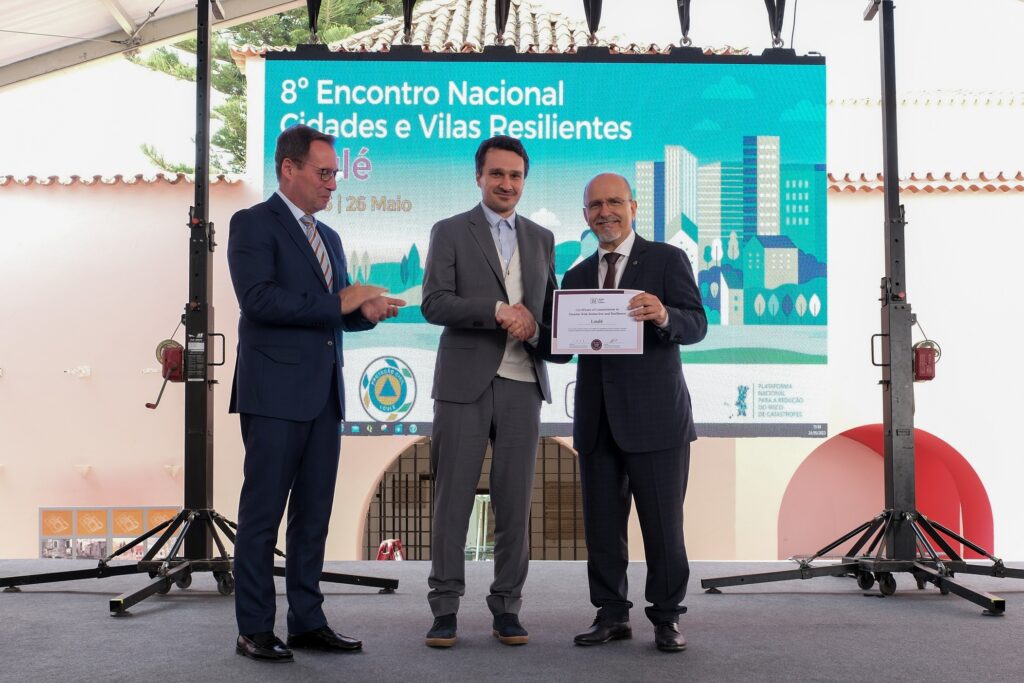
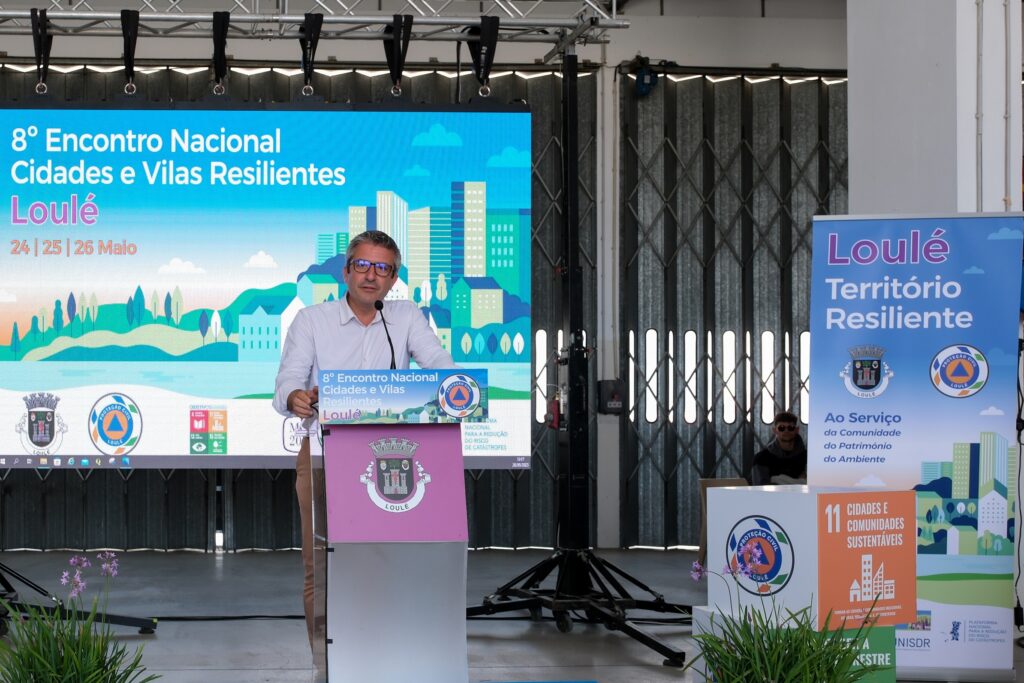
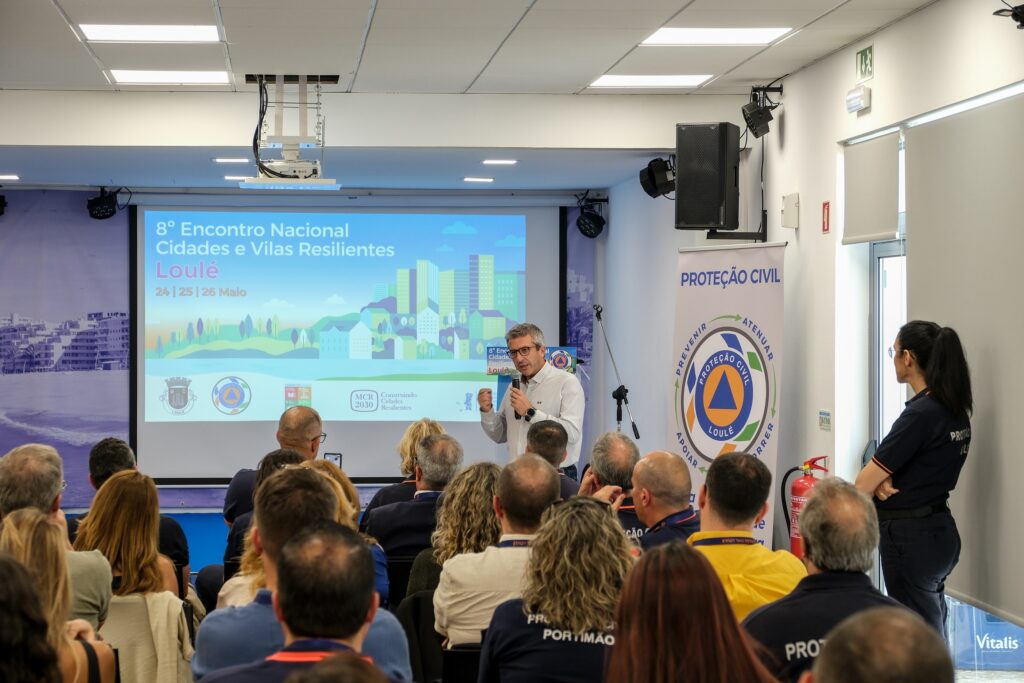
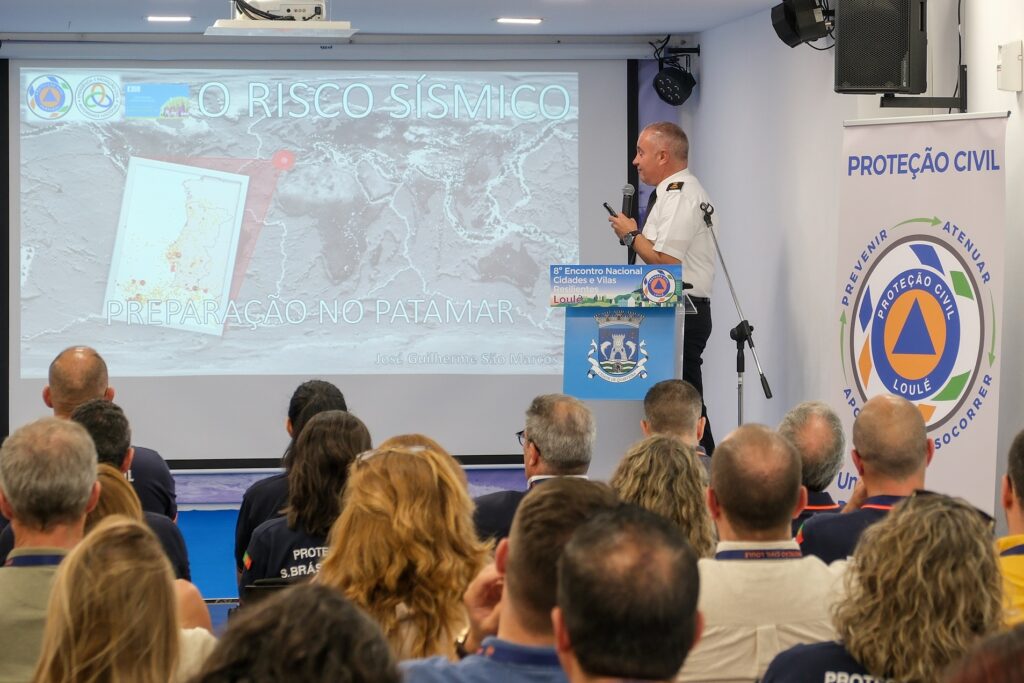
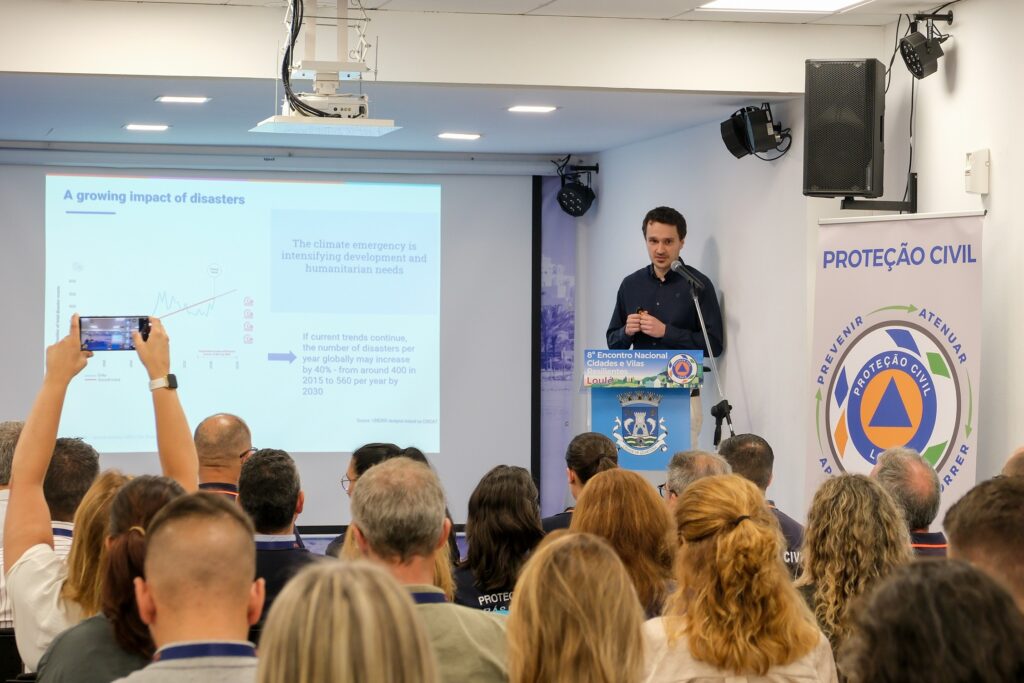
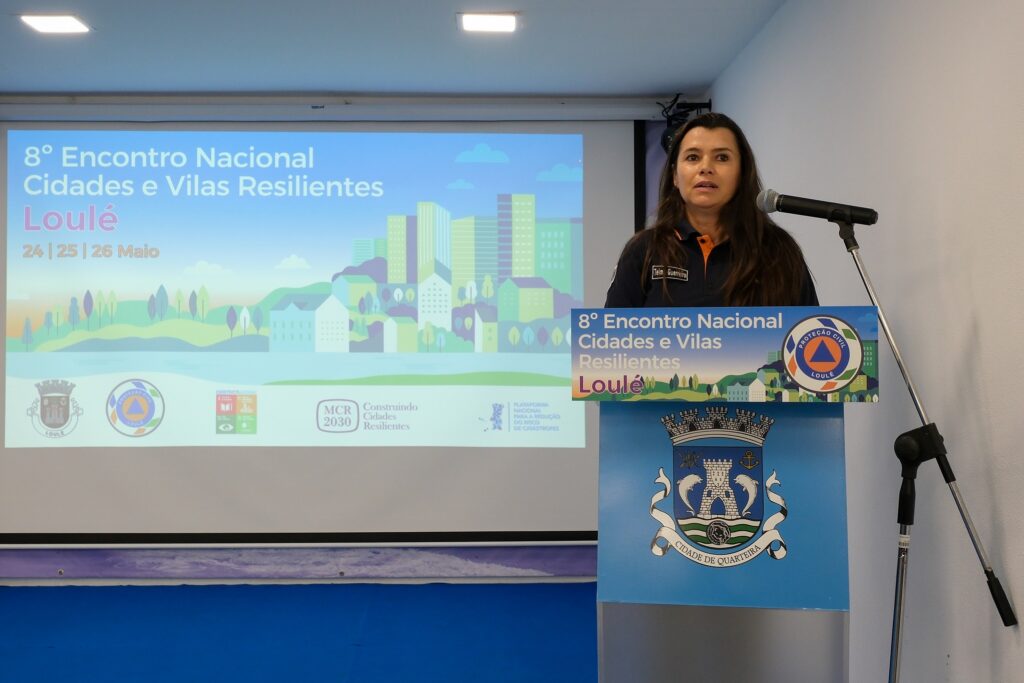
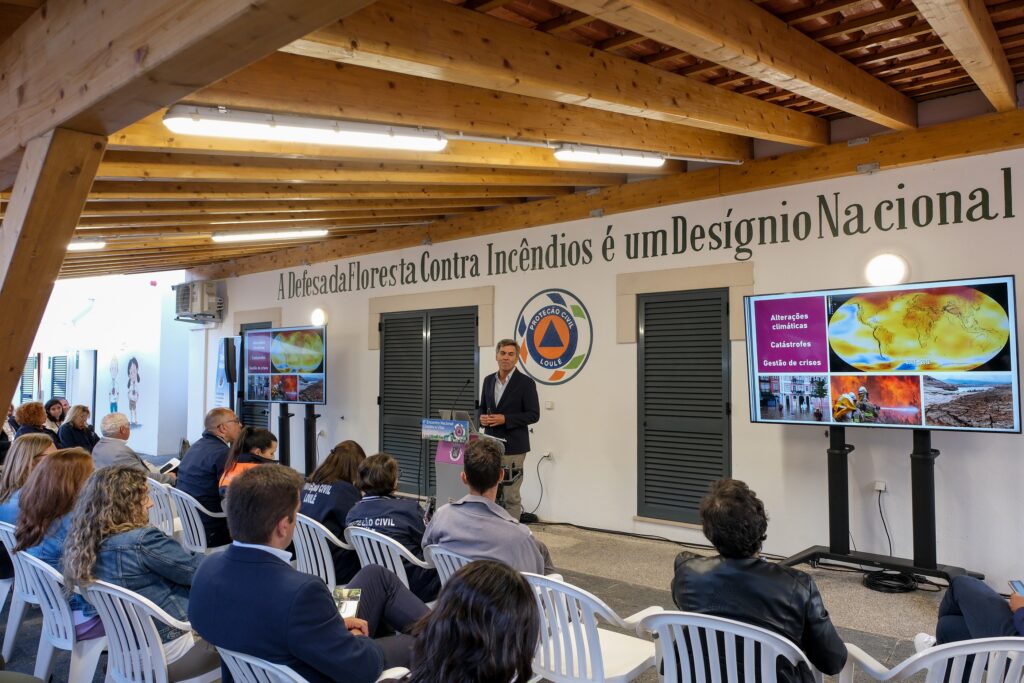
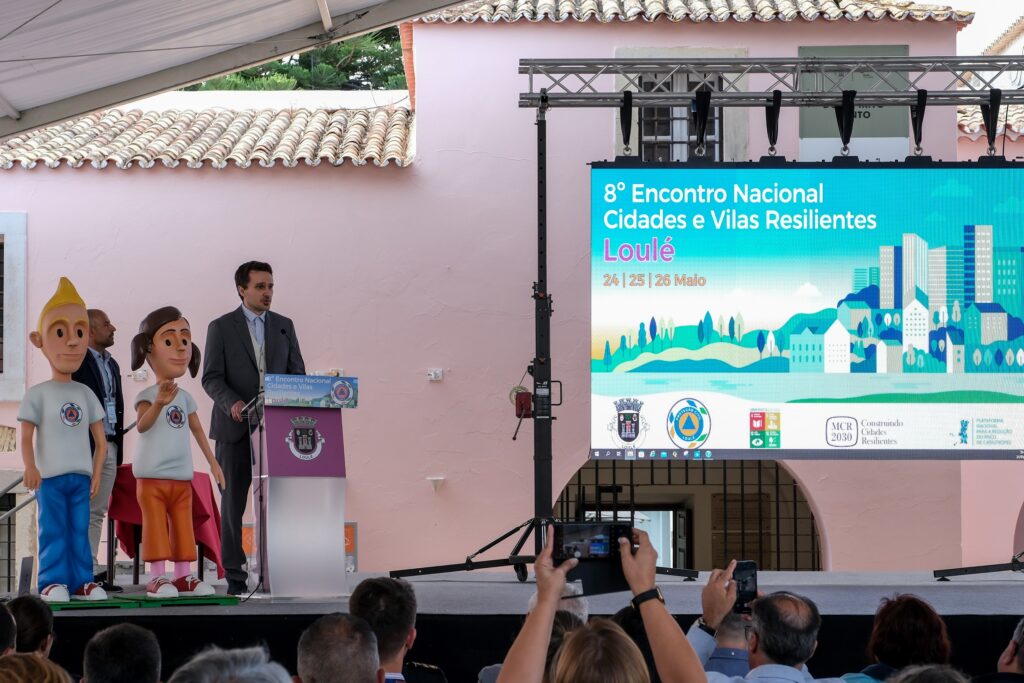
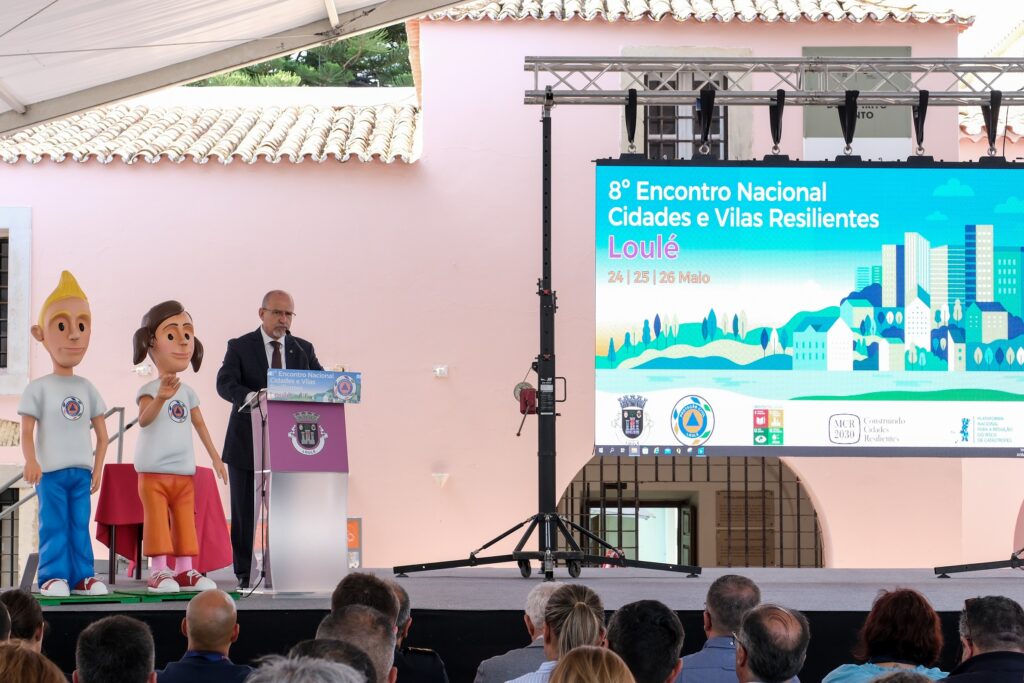



















Comments